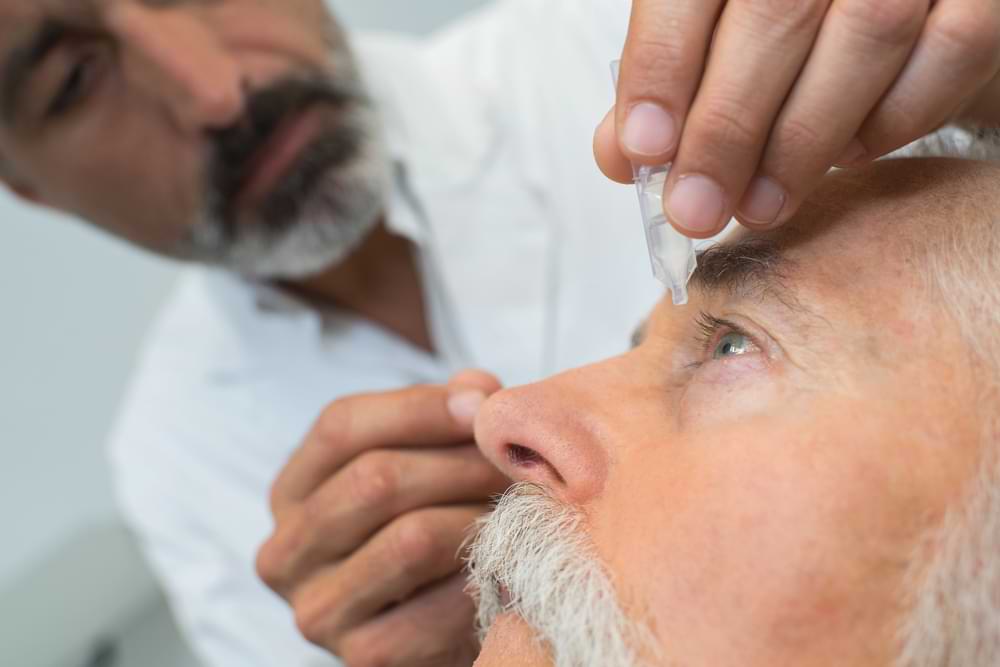Did you know that some specially trained optometrists can prescribe medications for your eyes? Contrary to popular belief, many optometrists can offer more than just eye tests, glasses and contact lenses.
Therapeutic endorsement allows optometrists to prescribe certain medications, which enhances our ability to treat various eye conditions directly.
To obtain therapeutic endorsement, optometrists must complete postgraduate studies and clinical training focused on pharmacology and the management of ocular diseases. This extra qualification allows us to prescribe topical medications, including antibiotics, antivirals, and anti-inflammatories, providing more comprehensive care to our patients.
The benefits of having a regular optometrist with therapeutic endorsement are substantial. It allows for timely and efficient treatment of eye conditions without the need for referrals to other specialists for prescriptions. This means quicker relief for patients and a more streamlined care process.
In case we haven’t met, I’m Juliet Menakaya, the Owner and Principal Optometrist at Junic Eye Care, where we prioritize the best possible eye health outcomes for our patients in Canberra. With my therapeutic endorsement, I can directly prescribe treatments for a variety of eye conditions.
Book your consultation to experience the exceptional services that Junic Eye Care offers.
Not ready for an appointment just yet? Keep reading to learn more about how our prescription services can benefit you.
The Different Roles of Eye Care Professionals
What role do different eye care professionals play in managing our eye health? As an optometrist, I frequently encounter questions about the distinctions between various eye care specialists.
An optometrist is a healthcare professional trained to examine, diagnose, treat, and manage diseases and disorders of the eye. We conduct comprehensive eye exams, prescribe corrective lenses, and provide treatment for specific eye conditions. Our scope of practice is broad, encompassing many aspects of eye health, but it’s essential to understand the nuances of our capabilities compared to other specialists.
Ophthalmologists are medical doctors specializing in the diagnosis, treatment, and management of eye diseases and vision disorders. They perform comprehensive eye exams, prescribe medications, and carry out intricate surgical procedures, such as cataract removal and laser eye surgery.
Optometrists and ophthalmologists often collaborate but their roles differ significantly. An ophthalmologist is a medical doctor specializing in eye and vision care, performing eye surgeries, and managing more complex eye diseases. Optometrists, while highly trained, do not perform surgeries but play a crucial role in primary eye care.


Limitations on Optometrists Prescribing Medications in Australia
What limitations and restrictions do Australian optometrists face regarding prescribing medication? In Australia, while therapeutic endorsement allows optometrists to prescribe a wide range of topical medications, there are notable restrictions. Currently, optometrists are not permitted to prescribe oral medications. This means that for conditions requiring oral antibiotics, antivirals, or anti-inflammatory drugs, patients must be referred to a general practitioner or an ophthalmologist.
Additionally, injectable medications are also outside the prescribing authority of optometrists. This restriction includes treatments like intravitreal injections used for conditions such as macular degeneration. These limitations require collaboration with other healthcare professionals to ensure comprehensive care for patients with more complex needs.
As of 2024, potential changes in legislation are a topic of ongoing discussion. Expanding the prescribing capabilities of optometrists to include oral and injectable medications would further enhance our ability to provide complete eye care. However, any changes would come with additional training requirements to ensure the highest standard of patient safety and care.
When Do Optometrists Prescribe Medication?
Various common and serious eye conditions can be effectively managed with topical medications, providing relief and promoting eye health without invasive procedures. Let’s explore these conditions in detail and understand how I prescribe topical treatments that can make a significant difference.
- Dry Eye Syndrome is one of the most prevalent conditions I treat with topical medications. I frequently recommend lubricating eye drops, also known as artificial tears, to alleviate the discomfort of dry eyes. These drops mimic natural tears, providing moisture and lubrication to the eye’s surface, which is essential for comfort and clear vision. In more severe cases, I prescribe cyclosporine eye drops to enhance tear production. Cyclosporine reduces inflammation and increases the number of tears produced by the tear glands, providing longer-lasting relief and preventing damage to the ocular surface.
- Conjunctivitis, or pink eye, can be bacterial or allergic. For bacterial infections, I find antibiotic eye drops effective in reducing infection and preventing its spread. These drops eliminate the bacteria causing the infection, helping to reduce symptoms such as redness, swelling, and discharge. Allergic conjunctivitis, on the other hand, benefits from antihistamine eye drops, which reduce itching and redness. Antihistamines block the histamines released during an allergic reaction, providing rapid relief from discomfort and preventing further irritation. Sometimes, I prescribe a combination of antihistamine and mast cell stabilizer drops to provide both immediate and long-term relief.
- Glaucoma, characterized by increased intraocular pressure, can lead to vision loss if untreated. I commonly prescribe prostaglandin analogs to reduce this pressure. These medications increase the outflow of the fluid inside the eye, thus lowering the pressure and preventing damage to the optic nerve. Additionally, I may use beta-blockers to decrease fluid production within the eye, offering another method of pressure control. By reducing the production of the aqueous humor, beta-blockers help maintain a balance and protect the optic nerve from damage. Both types of medications are essential in managing glaucoma and preventing its progression.
- Uveitis, an inflammation of the uvea, is managed with topical corticosteroids to reduce inflammation. Corticosteroids control the immune response that causes inflammation, thereby reducing pain, swelling, and redness. I also use cycloplegic eye drops to relieve pain and prevent complications by dilating the pupil and paralyzing the eye’s focusing muscles. This not only provides pain relief but also prevents the formation of synechiae (adhesions between the iris and the lens), which can lead to permanent vision impairment if not treated promptly.
- Corneal Ulcers can be bacterial or viral. For bacterial ulcers, I prescribe antibiotic eye drops to prevent severe damage and potential vision loss. These drops eliminate the bacterial infection and promote healing of the corneal tissue. For viral ulcers, I use antiviral ointment to manage the infection effectively. Antiviral medications inhibit the replication of the virus, controlling the infection and allowing the cornea to heal. Timely treatment of corneal ulcers is critical to prevent scarring and preserve vision.
- Allergic Eye Disease encompasses a range of allergic reactions affecting the eyes. I provide antihistamine eye drops for quick relief from itching and redness, while mast cell stabilizers are used to prevent the allergic response from occurring. Mast cell stabilizers prevent the release of histamine and other chemicals involved in allergic reactions, providing long-term control of symptoms. Combining these treatments helps manage both immediate and chronic symptoms of allergic eye disease, ensuring comfort and protection for the eyes.
- Herpes Simplex Keratitis, a viral infection of the cornea, requires careful management with antiviral ointment. This medication helps control the viral infection and prevent its spread to other parts of the eye. In some cases, I use steroid eye drops to control inflammation, but only under strict supervision due to potential side effects. Steroids reduce inflammation and improve comfort, but they must be used cautiously to avoid worsening the infection or causing other complications.
- Post-Surgical Inflammation often needs nonsteroidal anti-inflammatory drugs (NSAIDs) and steroid eye drops to control pain and swelling, ensuring a smooth recovery process. NSAIDs help reduce pain and inflammation without the risks associated with steroids, while steroid eye drops provide powerful anti-inflammatory effects when needed. Careful management of post-surgical inflammation is essential to promote healing and prevent complications.
- Blepharitis, an inflammation of the eyelids, can be managed with antibiotic eye drops or ointments to tackle bacterial infection. These treatments reduce bacteria on the eyelids and relieve symptoms such as redness, swelling, and crusting. For severe inflammation, I may use steroid eye drops to reduce inflammation and improve comfort. Proper eyelid hygiene, along with these treatments, can effectively manage blepharitis and prevent its recurrence.
- Keratoconjunctivitis Sicca, or severe dry eye, can benefit from cyclosporine eye drops to boost tear production. Lifitegrast eye drops may also be used to reduce inflammation and improve comfort. Cyclosporine and lifitegrast both address the underlying causes of dry eye by modulating the immune response and increasing tear production, providing long-term relief and protecting the ocular surface from damage.
- Myopia in children is often controlled using atropine drops. These drops help slow down the progression of nearsightedness, reducing the risk of severe vision problems later in life. By relaxing the eye’s focusing mechanism, atropine drops effectively slow the elongation of the eyeball, which is the primary cause of myopia progression.
- Amblyopia (lazy eye) is treated with atropine drops by temporarily blurring vision in the stronger eye. This encourages the weaker eye to work harder, improving visual development and strength in the affected eye. By promoting the use of the weaker eye, atropine drops help correct the visual imbalance and improve overall visual acuity.
CONCLUSION
Not all optometrists can prescribe medication. But as a therapeutically endorsed eye care professional in Canberra, I can prescribe topical medications for a variety of common eye conditions. This allows you to receive prompt and effective treatment without needing additional referrals. Whether it’s treating dry eye, conjunctivitis, glaucoma, or other conditions, I have the necessary qualifications to manage your eye health comprehensively. This capability ensures that you get the care you need efficiently, saving you time and reducing the hassle of seeing multiple specialists.
What are the benefits of having a regular optometrist? By scheduling appointments with Junic Eye Care, you ensure that your eye health is managed consistently and comprehensively. Regular check-ups allow me to monitor your eye health closely, catching any potential issues early and providing timely treatment. This continuity of care is crucial for maintaining optimal eye health, especially for chronic conditions that require ongoing management.
If you have any eye problems or concerns, please feel free to book an appointment at Junic Eye Care. I’m here to help you take proactive steps to maintain and improve your eye health. Together, we can work towards ensuring that your vision remains clear and your eyes stay healthy.
To visit our optometry practice, click the “Book Online” button at the top of the page or call (02) 6152 8585 today.
You’ll find our clinic conveniently located in the Molonglo Health Hub, just a short 10 minute drive from central Canberra, with plenty of free parking when you get here.

CANBERRA OPTOMETRIST
Juliet obtained her Doctor of Optometry degree from the University of Benin, Nigeria in 2006. She completed an internship programme before migrating to Australia, where she completed a master’s degree in public health at the University of Sydney in 2014. Following this, Juliet obtained a Master of Orthoptics from the University of Technology Sydney (UTS) in 2017.
Juliet has completed her competency in optometry examination with OCANZ (Optometry Council of Australia and New Zealand), and obtained her ophthalmic prescribing rights from ACO (Australian College Of Optometry Victoria). Juliet has worked in various positions, including retail Optometry, the Ophthalmology Department at Canberra Hospital, and more recently, at the John Curtin School of Medical Research (ANU).
As a dedicated Canberra optometrist, Juliet is passionate about helping people with low vision, and binocular vision anomalies hence her interests in Low Vision Rehabilitation, Eccentric Viewing Training and Paediatric optometry.

